11. Gertrud (Carl Theoder Dreyer, 1964)
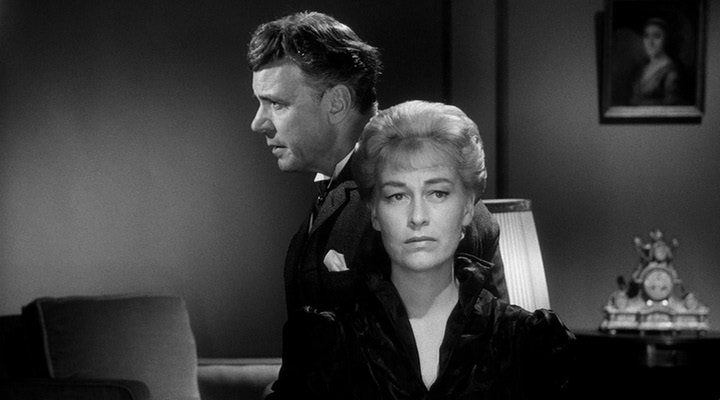
This is Dreyer’s last film and undoubtedly his masterpiece. His typical style is mastered to the highest level here. So many long takes are present here, which are hypnotic. The choices of music, costumes, and atmosphere are brilliant.
Gertrud (played by Nina Pens Rode) is the ultimate example of a woman who searches for love with a man, but she fails throughout her life. She is married but her husband is more concerned with his own passion and career, so he gives her little time. She tries to run away with her lover but even he doesn’t care about her since he has his own woman now. She was unsuccessful with her ex-lover as well. In all these relationships, she wants her partner to love her more than anything in his life, but she can’t find the one.
12. A Man and a Woman (Claude Lelouch, 1966)
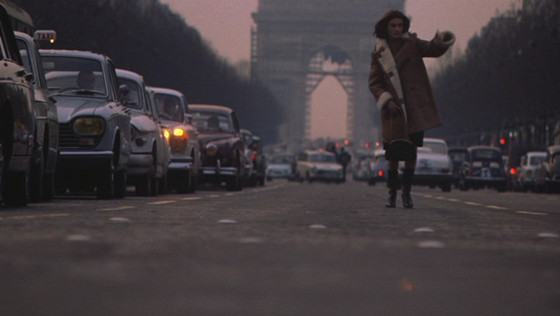
A widower (played by Jeanne-Louis Trintignant) has a son, and a widow (played by Anouk Aimee) has a daughter in same boarding school. They meet each other by chance when they go to pick their son and daughter. This begins a very interesting romantic relationship between them. They both fall in love with each other but they have pasts that haunt them in their hearts. They have children as well. All in all, this story is very fascinating.
Their romance is intensified by Francis Lai’s hypnotic score, lust photography, camera movements, use of black & white, full color and sepia-toned shots in different scenes that help to show the certain moments as Lelouch wanted. It is one of the most important films of the French New Wave that has pushed filmmaking boundaries to a greater extent.
13. Eros Plus Massacre (Yoshishige Yoshida, 1969)
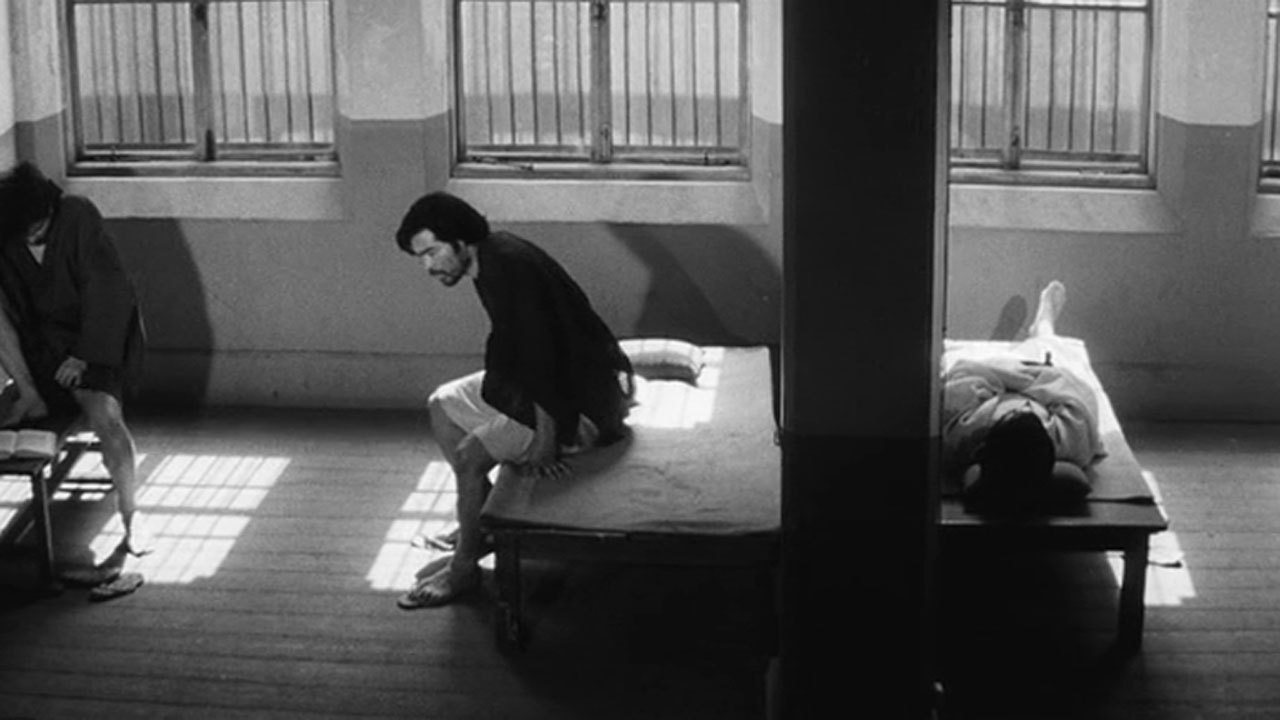
This famous Japanese New Wave film is mainly remembered for its stunning visual beauty, highly stylized cinematography, aesthetic imageries, philosophical conversations, and anarchistic characters and their free love. Aesthetically, it can be seen as the “Last Year at Marienbad” of Japan. It is a biopic of anarchist Sakae Osugi, who was assassinated by the Japanese military, as he used to speak of free love.
Osugi has a wife, a lover and another jealous lover here. You can see their relationship in a very unconventional style. Different characters from the past and present converse with each other. Yoshida has interwoven so many events, characters, time, locations and opinions in this film, in such a specific style that is both mesmerizing and a bit puzzling. Yoshida has tried to change the notion of love and relationships through this film. He has taken the biography of Osugi to share his opinions about free love.
14. Deep End (Jerzy Skolimowski, 1970)
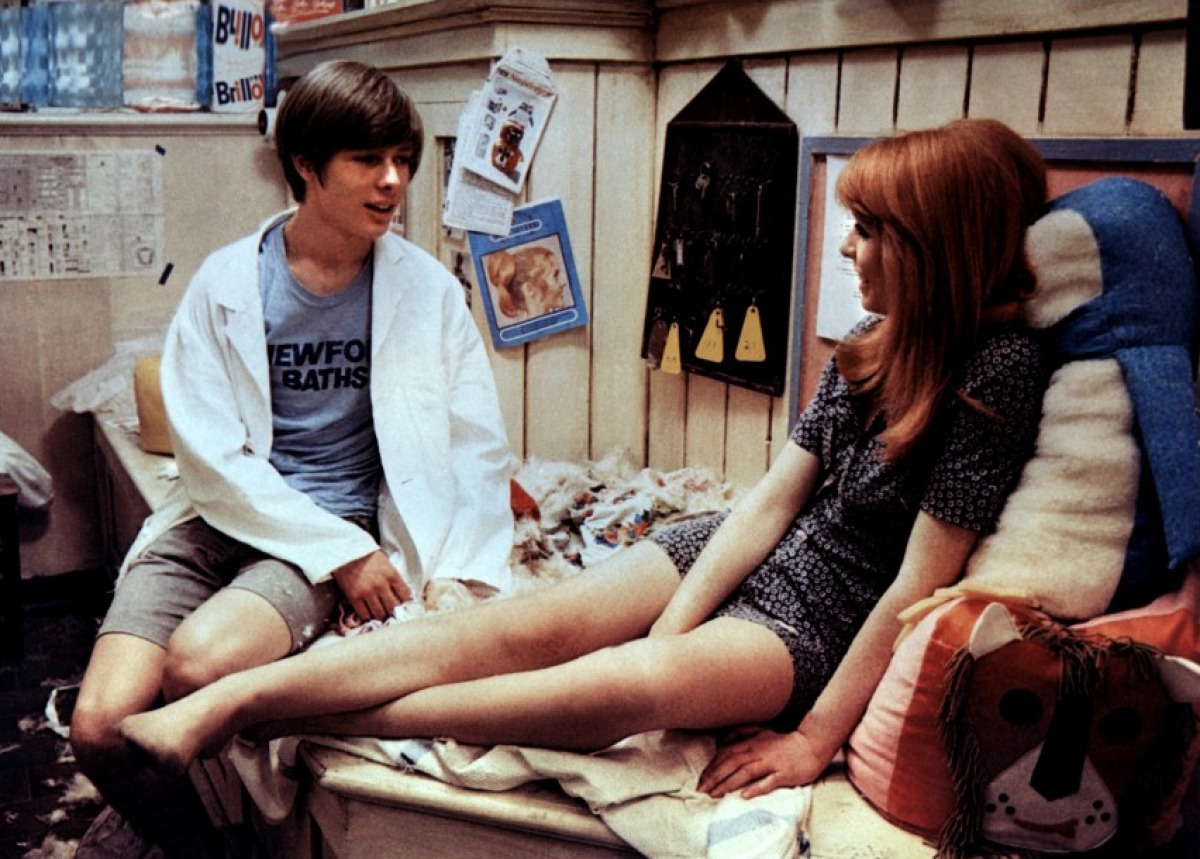
A boy falls in love with a adulterer who cheats with many men, including her fiancé. He follows her and tries to persuade her to be with him, but she doesn’t give much value to him. One thing is clear, she likes being followed and loved by him, so she doesn’t do anything to escape from him. He also don’t care about his mother’s and friends’ suggestions to stop following her. He loves her deeply and that is the most important thing to him. He tries to break all her bonds with other guys who don’t affect her very much.
The main attraction of this film is its two main characters. This boy is so obstinate, jealous, audacious and unhesitating, and the woman just likes to play with many men.
This film is mainly remembered for its visual beauty, beautiful cinematography, and presentation style. About this film, David Lynch says, “I don’t like color movies and I can hardly think about color. It really cheapens things for me and there has never been a color movie I’ve freaked out over except this one, this thing called ‘Deep End’ which had really great art direction.”
15. Death in Venice (Luchino Visconti, 1971)

An old composer travels to Venice for health problems. He is dying in the near future, and he knows that, but he falls in love with an adolescent boy who is strikingly beautiful. What can he do? How in the world can he express his love? And even if he can, should he? What a mockery! He can do nothing. He just quenches his thirst by looking that boy. He follows the boy here and there, having fear in his heart that the truth may be revealed, and that boy may know the ridiculous truth. He falls in a deep obsession in his dying stage that is so pitiful, ridiculous and unusual.
This film is intensely hypnotic, extremely poetic, full of romantic feelings and is so mesmerizing. Visconti is immensely talented in depicting the love of women and gay men. He is one of the best romantic directors in film history. Though “Rocco and his Brothers”, another film about same-sex love, is also great, this one can be said as his finest work.
16. Ali: Fear Eats the Soul (Rainer Werner Fassbinder, 1974)
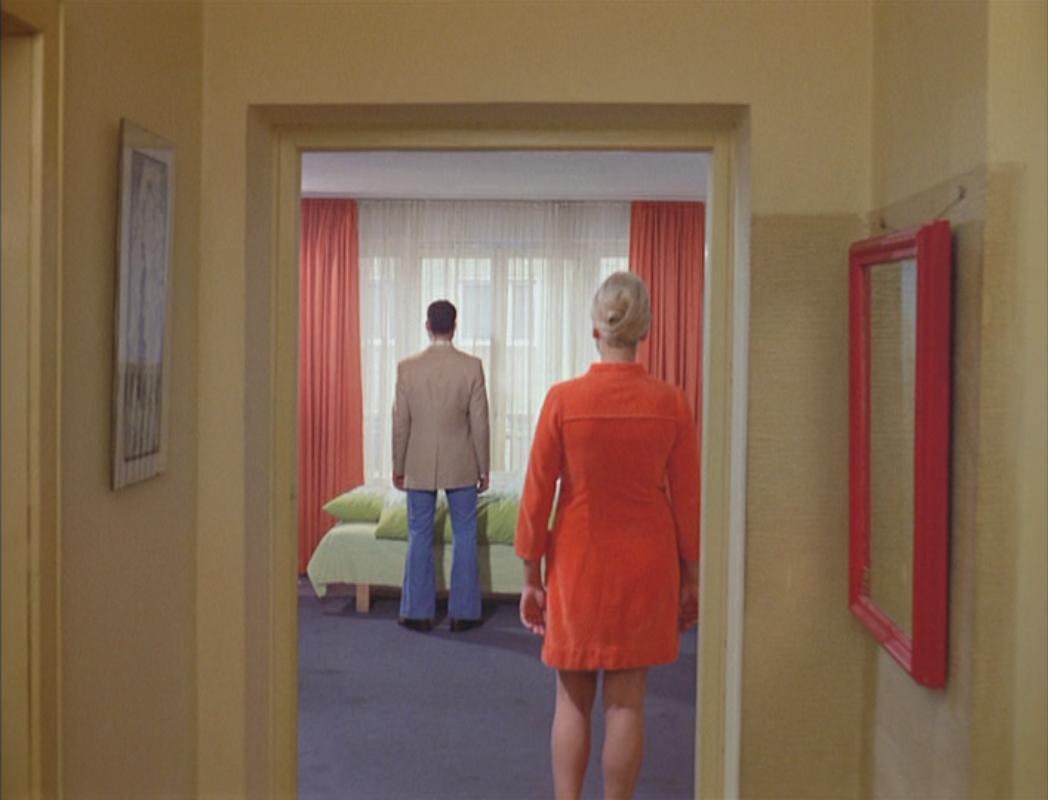
This film can be said as the Fassbinder version of “All That Heaven Allows”. You can see the clear influence of “Allows” and “Imitation of Life”, both directed by Douglas Sirk. Fassbinder has gone to a more extreme level, showing the love between an Arab man and a old German woman. Mainly, racism plays an important role in their relationship.
This film will capture your mind and heart from the beginning, when a haunting Arabian song rings through the bar and its protagonist, an Arab man, enters the bar. He ends up not only dancing with her that night, but also developing a romantic relationship with her. She is very old and has three grown descendants. One of them is even married.
There is huge racial discrimination in German society, and their relationship is almost a taboo for it. No one can accept their relationship. Instead, almost all the characters in this film start to ignore and humiliate them. They go through a very depressive and tormenting stage.
This film is even better than “Heaven Allows” in that it is more powerful in depicting the related subjects and themes on one hand. On other hand, its style is so gripping and powerful that audiences feel the same experiences as its characters.
17. In the Realm of the Senses (Nagisa Oshima, 1976)
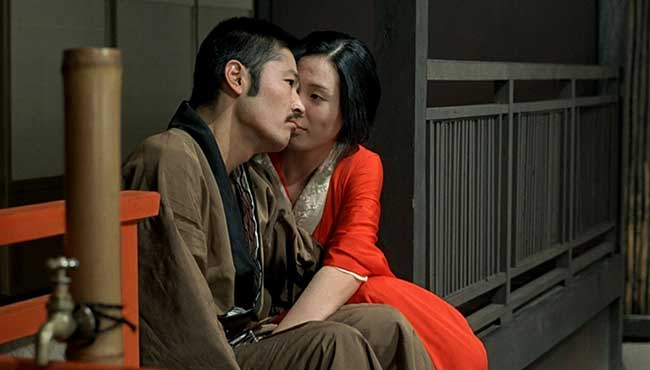
This shows a very crazy love (especially sex) story of a real woman Sada Abe (who is a folk hero of Japan), who had killed her own lover out of jealousy. She loves him so much that she doesn’t want him to share other women. That is the very reason that why she killed him. Sada is the ultimate example of a jealous woman who kills her own lover and decides to kill herself afterwards. Not that she is perverted; she is just jealous and afraid that her lover will have sex with other women (including his wife).
Don’t get angry if its story is spoiled to a great extent, because the core points of this film are its stunning beauty, lusty protagonists and their nature, Japanese geisha tradition, various sexual practices, and decadent Japanese tradition. Jealousy is also one of the major factors of love that affects us so deeply. Don’t miss this immensely erotic as well as romantic film.
18. Wings of Desire (Wim Wenders, 1987)
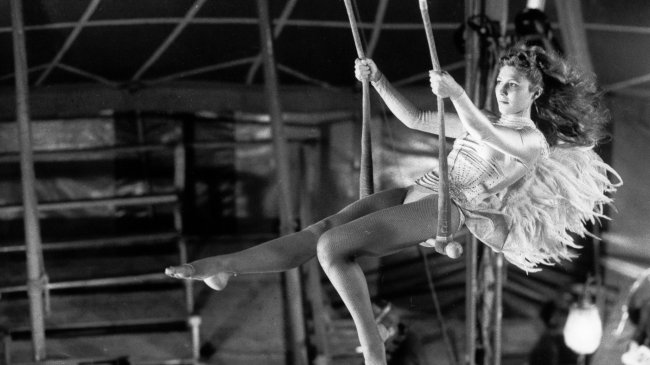
An angel falls in love with a lonely and beautiful trapeze artist in this incredible and unprecedented masterpiece. Now he has a problem. He is invisible and non-human. How does his love develop? He is one of many angels who wander here and there to listen human thoughts, and look at their activities and behavior. Among all those millions of Berliners, he falls in love with an artist who is very sad and lonely.
For the sake of love, this angel relinquishes his angelic powers and chooses to be human so that he can feel all the experiences that humans feel.
This film is like a great painting where there are a lot of beautiful imageries shown in a very poetic nature and highly beautiful cinematography. It has used a sepia-toned black and white to depict the worldview from the eyes of angels and a color to depict from human perspective.
19. Monsieur Hire (Patrice Leconte, 1989)
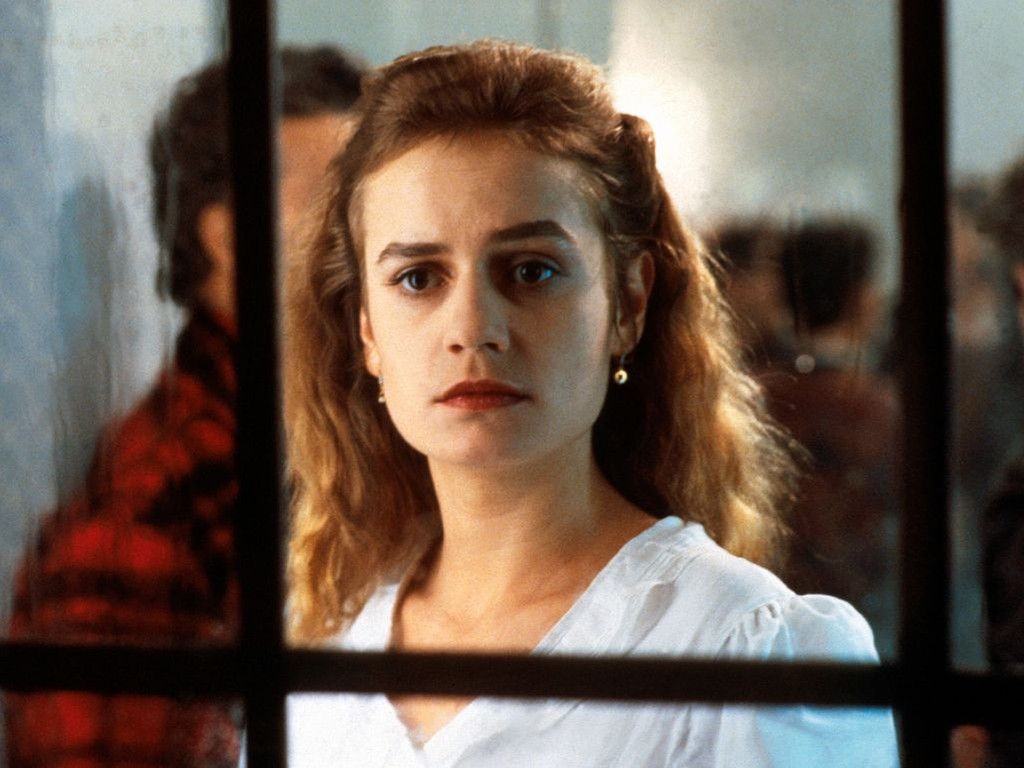
A very lonely, asocial, and schizoid man falls in love with a woman who has a boyfriend. Their apartments are near and face each other. He can see everything that the woman does in her room. He watches or spies on her while keeping the light off in his room. One day, she knows the truth.
How does she react? Actually, she loves being spied on. She even tries to seduce him. But you’ll be amazed after your prediction fails. Its story is irrelevant. Leconte has focused mainly on the characters.
Leconte generally makes great movies, and this one is his masterpiece. His characters are generally lonely, asocial, victimized, deceived and schizoid. Don’t miss his another great romantic film, “The Hairdresser’s Husband”.
20. A Short Film About Love (Krzysztof Kieslowski, 1989)
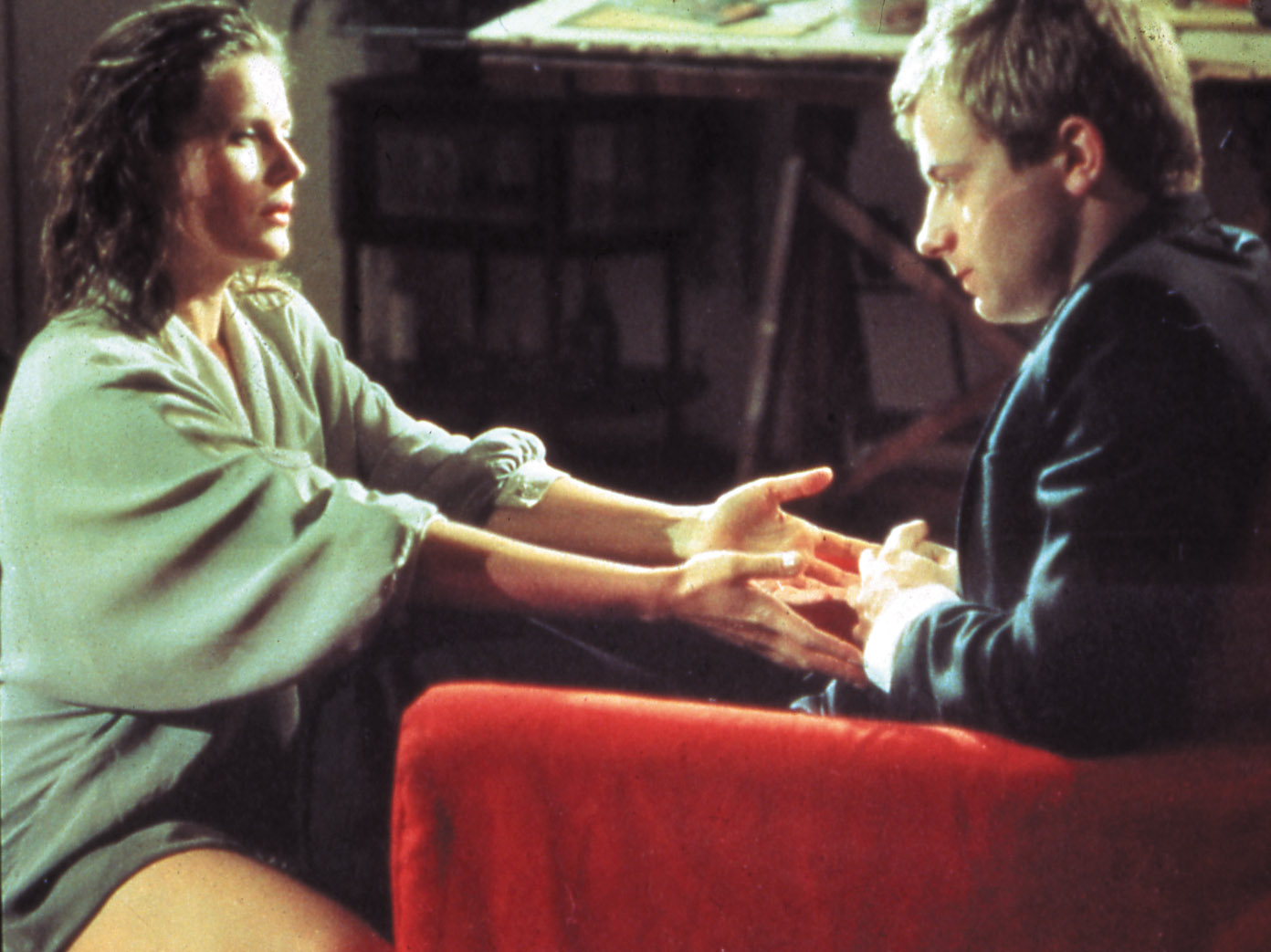
A boy falls in love with a woman who is many years older than him and has a boyfriend. Like in “Monsieur Hire”, he spies in her apartment room using a telescope from his apartment, since they are far. He watches everything that she does in her room, like changing clothes, making love with her boyfriend, eating, drinking and crying. She even has sexual relationships with other guys as well.
He finds it difficult to express his love and just quench his thirst every day and night spying on her through his telescope. There are some mediums through which he can affect her life positively or negatively that depends on his wish. He does certain things that make the girl become aware of the spying. There comes a time when she knows that he loves her but only sensually, she thinks. How does boy’s love go? That’s very intriguing.
In this ultimate one-sided love story, Kieslowski has shown love from the viewpoint of both protagonists, a boy and a woman. He has delved very deeply into human psychology and emotions, where one can feel romantic and guilty experiences watching it.